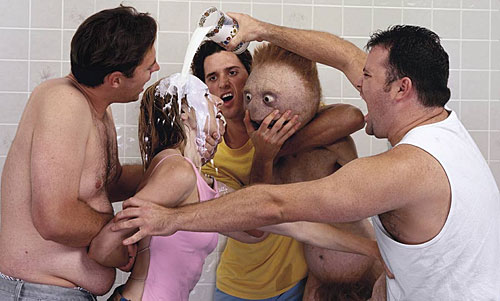
This seminar will examine contemporary art photography since the late 1970s. We will cover some, but not all,
of the following topics:
- "Appropriation, Postmodernism, and Photography," an examination of the rise of the "postmodern" or appropriationist photographers - such as Richard Prince, Cindy Sherman, and Sherrie Levine - in the 1980s and the ways in which their work differed from "memory photographers" - such as Christian Boltanski, Krzysztof Wodiczko, and Shimon Attie - who used strategies of appropriation to radically different ends in the 1980s and 1990s.
- "Polemical Portraiture: Gender, Sexuality, and Race as Sites of Contention," an examination of the "culture wars" that emerged around the portraiture and other genres of photography in the work of Andreas Serrano, Robert Mapplethorpe, and others in the 1980s. Here we will focus on how the representation of taboo behaviours and sub-cultural practices - which was used to criticize norms of traditional behaviour during the Regan Era - was transformed to become a central strategy of black and "post-black" conceptualist photographers in the 1990s, including Carrie May Weems, Lorna Simpson, and others.
- "Documenting the Revolution in Everyday Life," an examination of the work of Nan Goldin, Larry Clark, and others in terms of their presentation of sub-cultural lifestyles in the 1980s, and the ways in which the "punk" snapshot aesthetic of these photographers influenced new forms of sub-cultural expression in the work of Wolfgang Tillmans and others in the 1990s.
- "Documentary Photography as Both a Commercial and a Private Practice," an examination of the radical divisions between public and private that entered documentary photography in the 1980s in the work of Martha Rosler, Allan Sekula, Sebastiao Salgado, Luc Delahaye, and others, and the ways in which the development of digital photography in the 1990s helped to erode the truth value of the photograph.
- "Advertising: The Cycle of Consumption," an examination of two key developments in advertising: first, the rise of the advertising art photographer through such figures as Richard Avedon, Helmut Newton, and others; and second, artistic interventions into the sphere of advertising in the 1980s and 1990s in the work of Barbara Kruger, Felix Gonzalez-Torres, and others.
- "The New Objectivity meets Social Theory: Conceptual Photography in Germany," an examination the work of Bernd and Hilla Becher, as well as their students, Thomas Ruff, Thomas Struth, Andreas Gursky, and Candida Hoefer, in terms of their development of documentary practices started in the 1920s by such photographers as August Sander and Albert Renger-Patzsch.
- "Staging: Spectators and Narrative Tableaus," an examination of the development of staged photography since the 1980s in the work of Peter Fischli and David Weiss, Jeff Wall, Thomas Demand, Charlie White, Gabriel Orozco, Gillian Wearing, Joan Fontcuberta, and others.
- "Suspicious Spectatorship: Photography, the Mass Media, and Politics," an examination of the photographic interrogation of spectatorship in the 1990s in the work of Uta Barth, Allan McCollum, Michal Rovner, Sophie Callie, Orlan, Philip-Lorca diCorcia, Vik Muniz, and others.
- "Performing Identity in the Age of Digital Reproduction," an examination of the ways in which identity has been re-imagined in photography and video since the 1990s in the work of Matthew Barney, Yasumasa Morimura, Yinka Shonibare, Mariko Mori, and others.